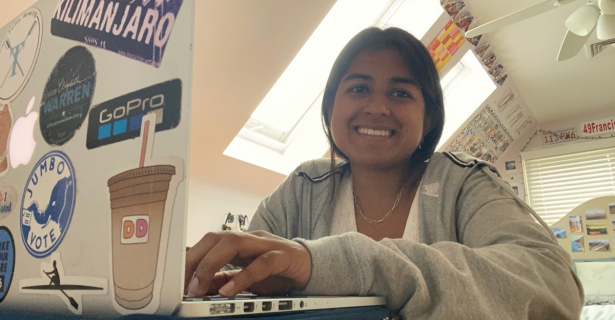For the past year, I have been working on an independent research project that compares women’s resistance movements in Algeria during the Algerian Revolution and Palestine during the First Intifada. This project was inspired by a research paper that I wrote in Fall 2019 for my Colonizing Palestine class on this topic. The ultimate goal of this research is to investigate how the fight for gender equity, particularly within the political and cultural climate of Northern Africa and the Middle East, is affected by independence movements. My hope is that future struggles for gender equity can learn from the mistakes and triumphs of the past.
Throughout this year, I have worked with Elizabeth (Biz) Herman, an IGL alumna and PhD candidate at the University of California Berkeley, on this project. Her guidance has been integral in learning the various methods of data collection and analysis as well as the steps to conduct ethical research. Under Biz’s mentorship, I have become familiar with where the current research stands on this topic, as well as identifying gaps to be filled. These insights have culminated in a comprehensive literature review. In addition, I have developed a pre-analysis plan and submitted it to Evidence in Governance and Politics (EGAP), global research, evaluation and learning network that outlines both my qualitative and quantitative research methods. Lastly, I have received IRB approval at Tufts to conduct interviews with women from Palestine and Algeria who were involved in independence movements. These interviews are valuable to add the direct narrative of women in war, often excluded from history despite the fact that many women leaders and activists have contributed to the fights for independence and ought to be remembered.
This summer, I will continue the data collection and analysis portion of this research. To begin, I will conduct interviews with women leaders and activists. I will also conduct data analysis using existing datasets to test questions of how independence movements have affected women’s political and economic participation as well as their fight for gender equality in the post-war era. Together, these quantitative and qualitative data will provide an insight into how women in Palestine and Algeria are affected during and after times of war.
I am very grateful to Biz and the IGL for their continued support on this research regarding both resources and funding for an Arabic translator. I am looking forward to the work I will do this summer to complete this project and to contribute to this area of research in a productive way.

